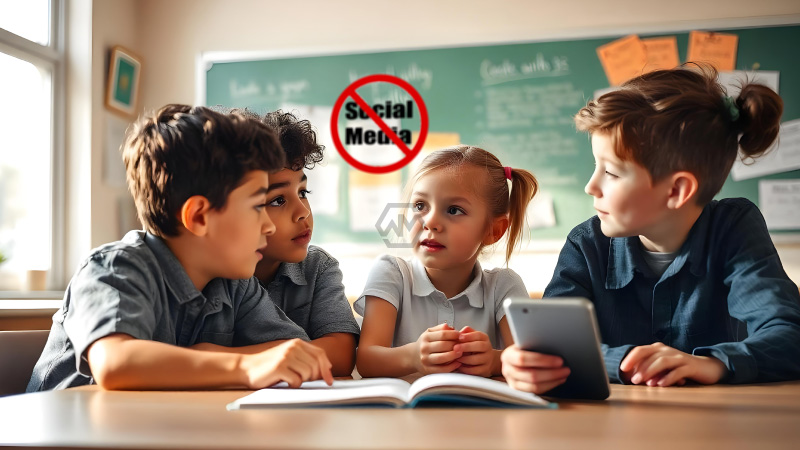- The Australian House of Representatives has passed a bill banning social media for children under 16, with the Senate vote imminent.
- Platforms must implement age-verification systems or face fines of up to AUD 49.5 million.
- Critics warn of privacy risks, youth isolation, and potential ineffectiveness of the measure.
Australia’s proposed social media ban for children under 16 has garnered significant public and political backing, with 77% of Australians supporting the move. The bill, introduced after alarming cases of cyberbullying and self-harm among minors, seeks to impose strict age-verification measures on platforms like TikTok and Instagram.
However, the legislation has faced pushback from tech giants and civil liberties advocates. Critics argue that the law could infringe on children’s rights, isolate young users, and drive them toward unsafe online spaces.
Australia’s Bold Step: Social Media Restrictions for Minors Spark Debate
The Australian government is taking unprecedented action to protect children by proposing a ban on social media use for individuals under 16. The bill, passed overwhelmingly in the House of Representatives, is positioned as a critical measure to safeguard young people from cyberbullying and excessive screen time, both linked to mental health issues.
Proponents, including parents and advocacy groups, view the law as a necessary step to address the risks posed by unregulated access to social platforms. Prime Minister Albanese has championed the bill, citing its potential to make online spaces safer for children. The government plans to enforce penalties on platforms that fail to comply, with fines reaching AUD 49.5 million.
On the other hand, opposition voices, including tech companies and youth advocates, question the law’s effectiveness and potential unintended consequences. Critics argue that it might isolate children, undermine their ability to engage socially, and lead to enforcement challenges. The proposed use of age-verification technologies has also drawn scrutiny for privacy concerns.
As debates continue, the legislation underscores a broader global reckoning with the role of social media in young people’s lives. While Australia’s measures are bold and proactive, the question remains whether such laws will achieve the intended balance between protection and accessibility.
Australia’s social media ban for children under 16 marks a turning point in global digital policy, aiming to address online harm while sparking critical conversations on privacy and youth rights.
“If it helps, even in the smallest of ways, it will make a huge difference to people’s lives.” – Dan Tehan, Australian Opposition Lawmaker



